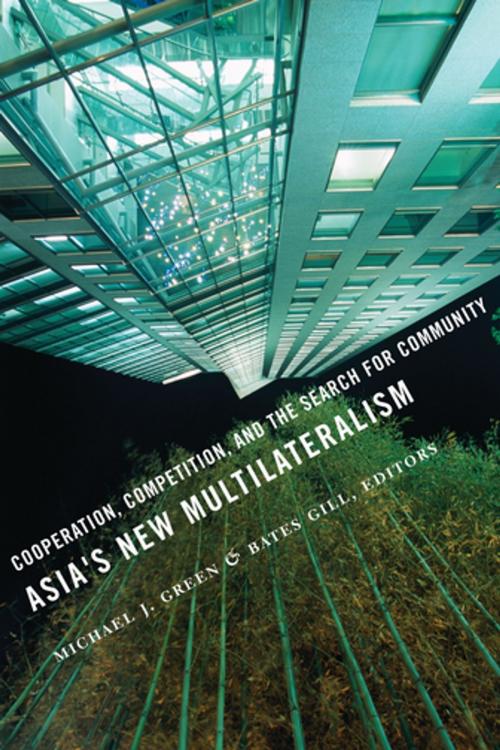Asia's New Multilateralism
Cooperation, Competition, and the Search for Community
Nonfiction, History, Asian, Asia, Social & Cultural Studies, Political Science, International, International Relations| Author: | ISBN: | 9780231513418 | |
| Publisher: | Columbia University Press | Publication: | February 25, 2009 |
| Imprint: | Columbia University Press | Language: | English |
| Author: | |
| ISBN: | 9780231513418 |
| Publisher: | Columbia University Press |
| Publication: | February 25, 2009 |
| Imprint: | Columbia University Press |
| Language: | English |
Traditionally, stability in Asia has relied on America's bilateral alliances with Japan, Australia, and the Republic of Korea. Yet in recent years, emergent and more active multilateral forums-such as the Six-Party Talks on North Korea and the East Asia Summit-have taken precedence, engendering both cooperation and competition while reflecting the local concerns of the region.
Some are concerned that this process is moving toward less-inclusive, bloc-based "talking shops" and that the future direction and success of these arrangements, along with their implications for global and regional security and prosperity, remain unclear. The fifteen contributors to this volume, all leading scholars in the field, provide national perspectives on regional institutional architecture and their functional challenges. They illuminate areas of cooperation that will move the region toward substantive collaboration, convergence of norms, and strengthened domestic institutions. They also highlight the degree to which institution building in Asia-a region composed of liberal democracies, authoritarian regimes, and anachronistic dictatorships-has become an arena for competition among major powers and conflicting norms, and assess the future shape of Asian security architecture.
Traditionally, stability in Asia has relied on America's bilateral alliances with Japan, Australia, and the Republic of Korea. Yet in recent years, emergent and more active multilateral forums-such as the Six-Party Talks on North Korea and the East Asia Summit-have taken precedence, engendering both cooperation and competition while reflecting the local concerns of the region.
Some are concerned that this process is moving toward less-inclusive, bloc-based "talking shops" and that the future direction and success of these arrangements, along with their implications for global and regional security and prosperity, remain unclear. The fifteen contributors to this volume, all leading scholars in the field, provide national perspectives on regional institutional architecture and their functional challenges. They illuminate areas of cooperation that will move the region toward substantive collaboration, convergence of norms, and strengthened domestic institutions. They also highlight the degree to which institution building in Asia-a region composed of liberal democracies, authoritarian regimes, and anachronistic dictatorships-has become an arena for competition among major powers and conflicting norms, and assess the future shape of Asian security architecture.















